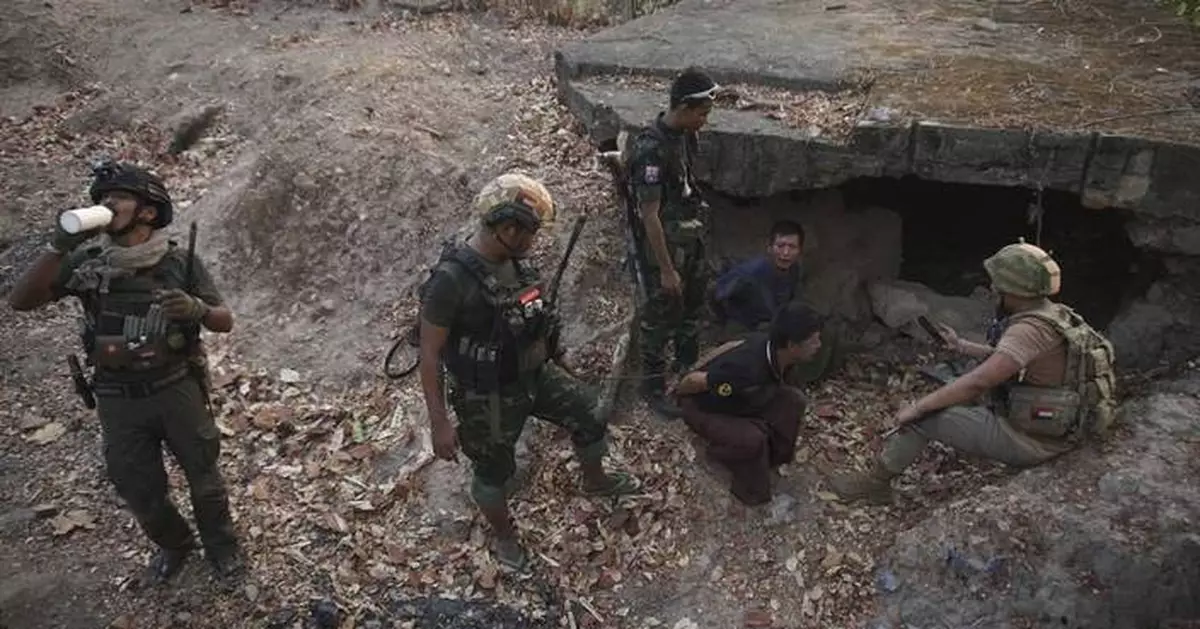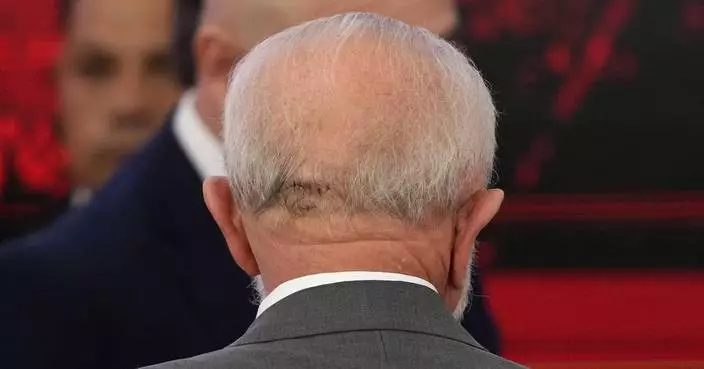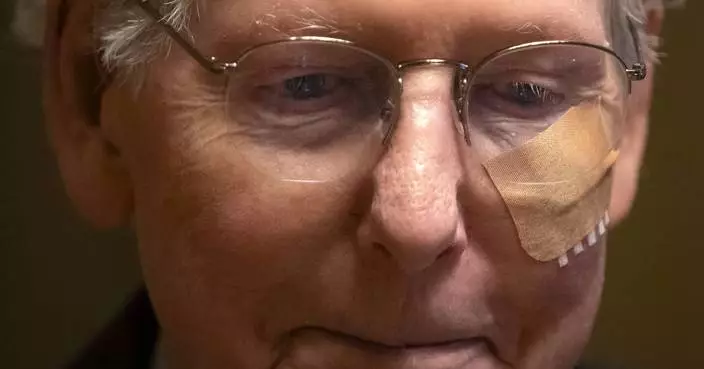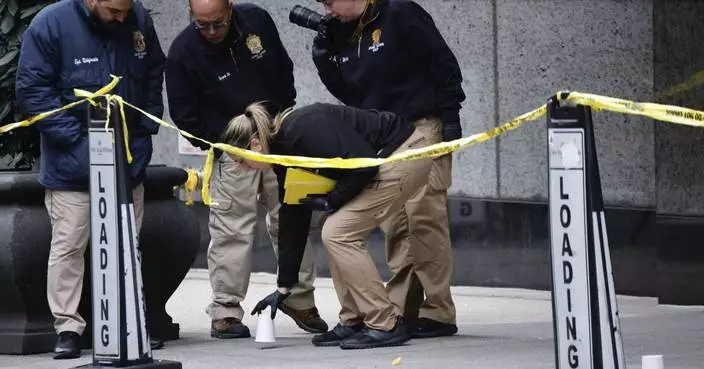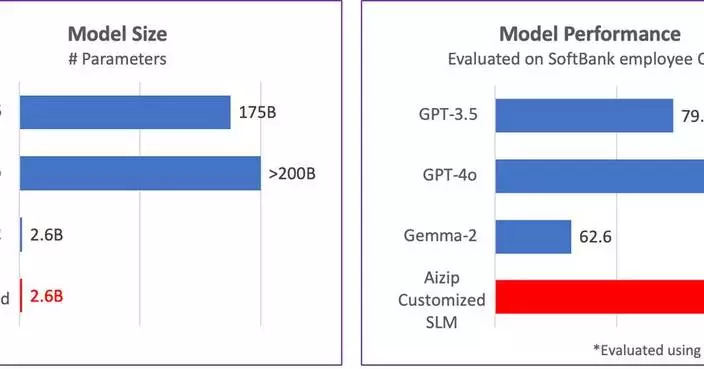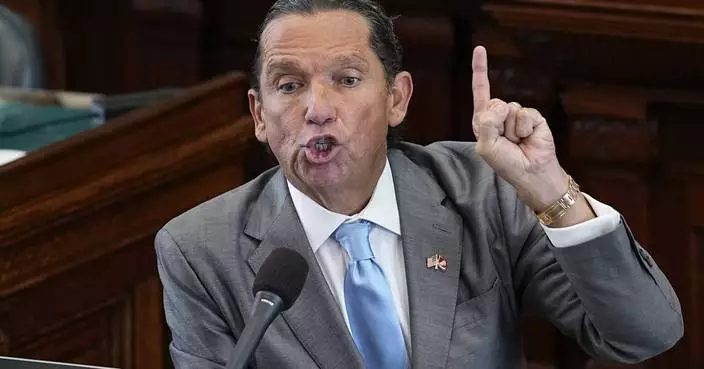BANGKOK (AP) — Guerrilla fighters from Myanmar’s Karen ethnic minority claimed Monday to be close to seizing control of a major trading town bordering Thailand, as soldiers and civil servants loyal to the military government appeared to be preparing to abandon their positions.
The occupation of Myawaddy town by the Karen National Liberation Army, the armed wing of the Karen National Union, or KNU, appeared imminent as the guerrillas seized or besieged strategic army outposts on the town’s outskirts, a spokesperson and members of the KNU said Monday.
Myawaddy, in Kayin state, is Myanmar’s most active trading post with Thailand, and its fall would be the latest in a series of shock defeats suffered by the army since last October, when an alliance of three other ethnic rebel groups launched an offensive in the country’s northeast. Over the past five months, the army has been routed in northern Shan state, where it conceded control of several border crossings, in Rakhine state in the west, and is under growing attack elsewhere.
The military government under Senior Gen. Min Aung Hlaing has acknowledged it is under pressure, and recently introduced conscription to boost its ranks.
The nationwide conflict in Myanmar began after the army ousted the elected government of Aung San Suu Kyi in February 2021 and suppressed widespread nonviolent protests that sought a return to democratic rule.
Three residents of Myawaddy town, who spoke on the condition of anonymity because they fear being arrested by either warring side, told The Associated Press by phone that they had heard no sounds of the fighting outside since Sunday afternoon. They said most residents were working as usual, while others were preparing to flee to Mae Sot, just across the border in Thailand. Two of them said they had not seen any members of the government’s security forces since Sunday.
The situation was highlighted Sunday night when a Myanmar plane made an unscheduled flight to Mae Sot from Yangon, Myanmar’s biggest city. Thai media reported that the plane had received permission from Thai authorities to evacuate people fleeing Myawaddy. It was not clear if those fleeing, described as military and civil servants loyal to Myanmar's military government, had already crossed into Thailand over the river that marks the border.
Thailand’s Foreign Ministry on Monday confirmed that approval was given for three flights on a Yangon-Mae Sot route to transport passengers and cargo, one each day on Sunday through Tuesday. Myanmar’s government later canceled its requests for the remaining two flights.
The Thai government was closely monitoring the situation along the border, and is ready to take all necessary measures to maintain peace and order, and to keep the people along the border safe, the Thai ministry said.
In times of fighting along the frontier, Thailand has generally granted temporary shelter to Myanmar villagers. There are also about 87,000 living in nine long-term refugee camps.
The KNU, which is the leading political body for the Karen minority, said in a statement posted on Facebook that its armed wing and allied pro-democracy forces on Friday had seized the army base on the road to Myawaddy at Thin Gan Nyi Naung. It had served for nearly six decades as the military’s regional headquarters.
It said that 617 members of the security forces and their family members had surrendered. The KNU posted photos of the weapons that it claimed to have seized and captured military personnel and their family members given shelter in a school.
Two Karen guerrillas involved in their group’s offensive told AP on Monday that they have surrounded an army garrison about 4 kilometers (3 miles) to the west of Myawaddy that is in charge of the town’s security, and an artillery battalion to the south. Negotiations were underway for their surrenders, they said, speaking on condition of anonymity because they are not authorized to release information.
They also said the Karen have control of about 60% to 70% of Myawaddy township, and are almost certain to capture the town itself after the two bases surrender or are overrun.
The Karen, like other minority groups living in border regions, have struggled for decades for greater autonomy from Myanmar’s central government.
Fighting between the army and Karen armed groups intensified after the military seized power in 2021. Several ethnic rebel groups including the Karen have loose alliances with pro-democracy militias after the military takeover, and also offer refuge to the civilian opponents of the military government.
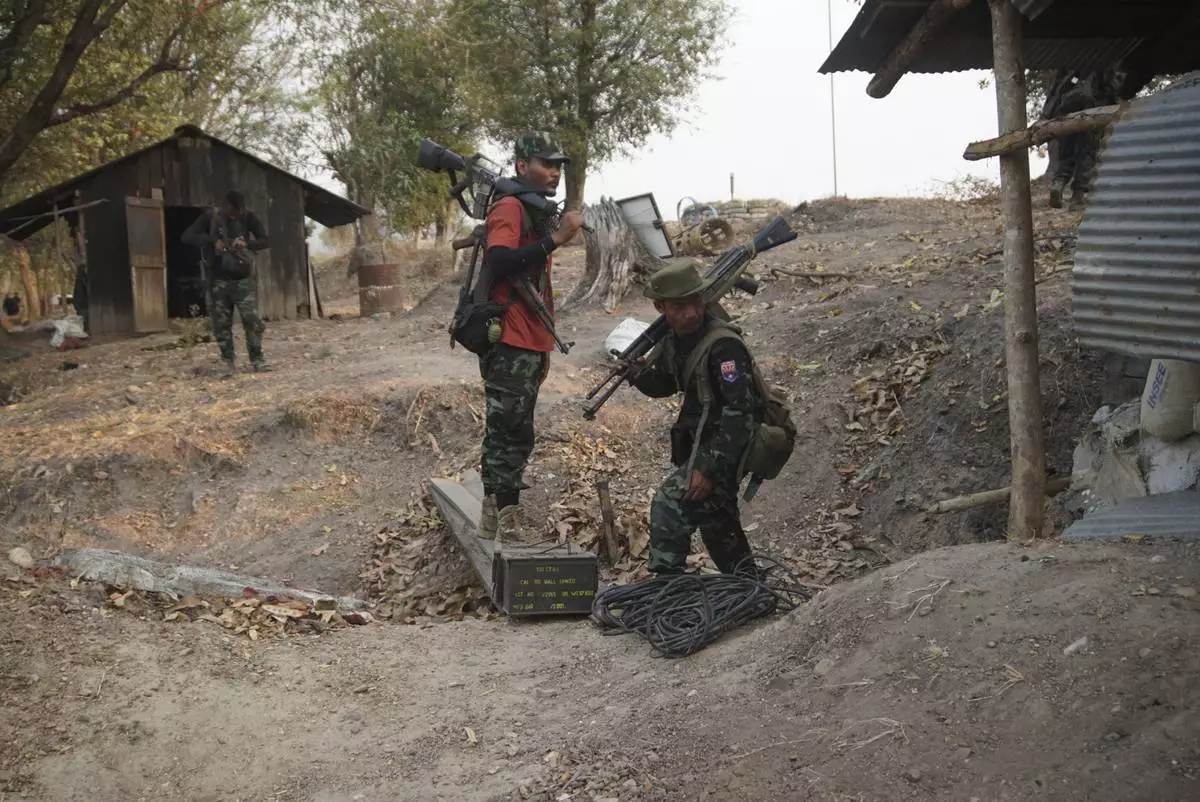
Members of the Karen National Liberation Army and People’s Defense Force collect weapons after they captured an army outpost, in the southern part of Myawaddy township in Kayin state, Myanmar, March 11, 2024. (AP Photo/METRO)
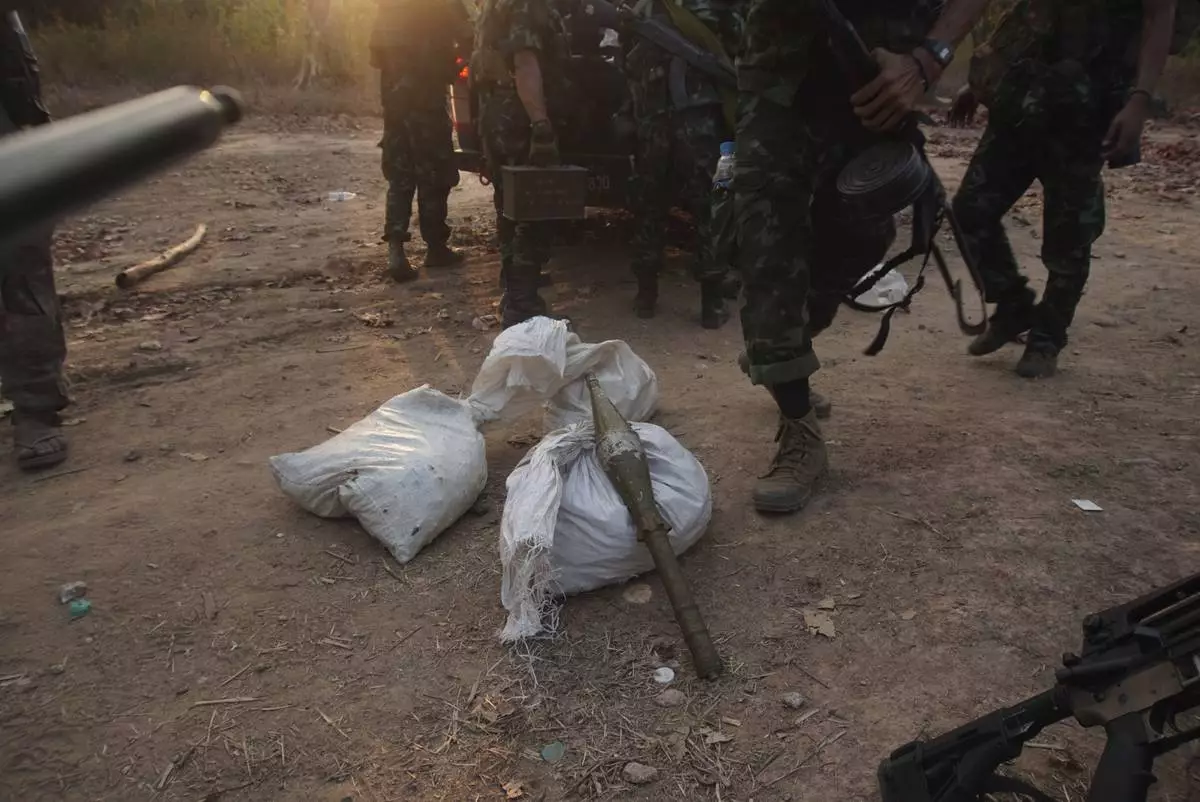
Members of the Karen National Liberation Army and People’s Defense Force collect weapons after they captured an army outpost, in the southern part of Myawaddy township in Kayin state, Myanmar, March 11, 2024. (AP Photo/METRO)
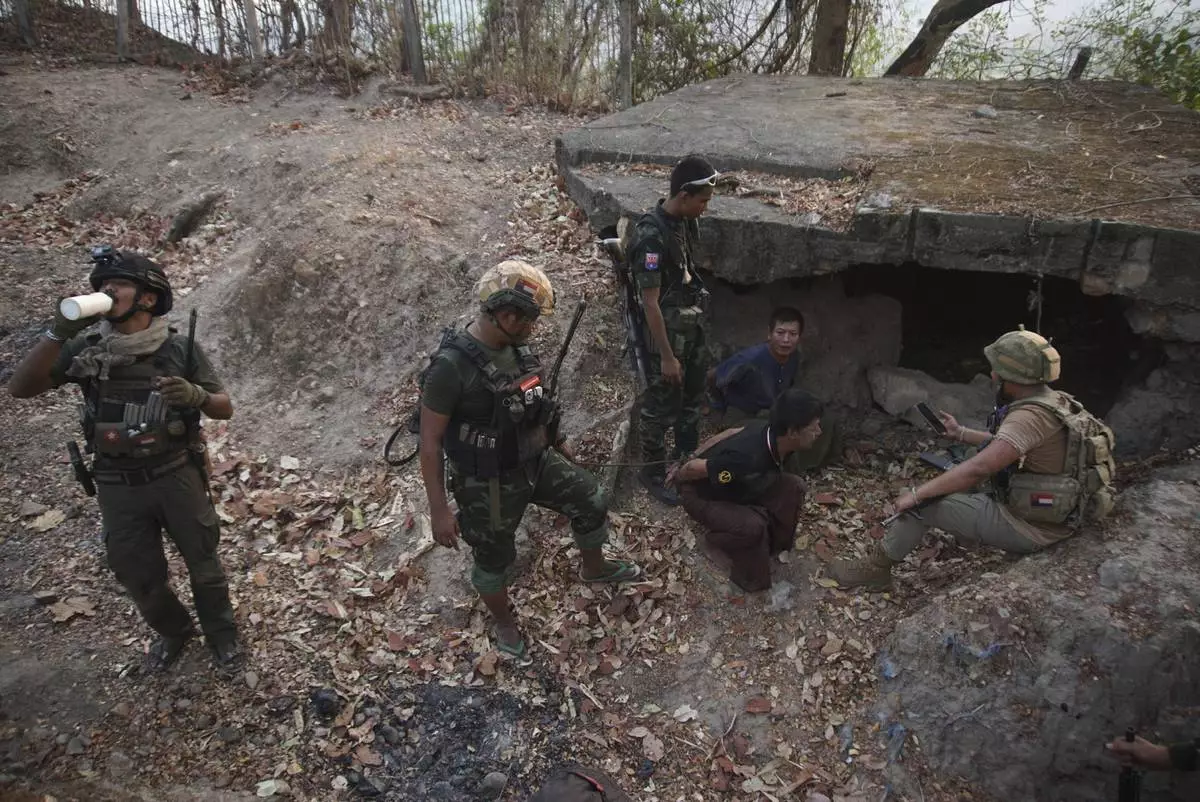
Members of the Karen National Liberation Army and People’s Defense Force examine two arrested soldiers after they captured an army outpost, in the southern part of Myawaddy township in Kayin state, Myanmar, March 11, 2024. (AP Photo/METRO)


